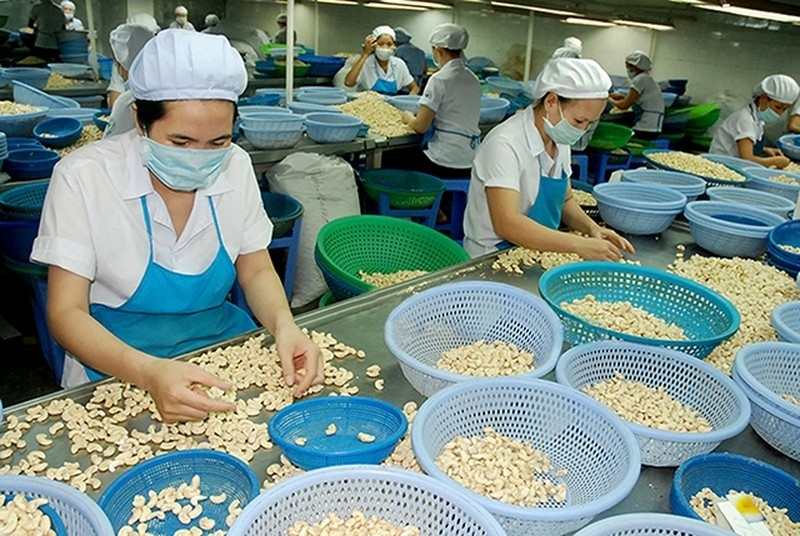Vietnam and West Africa seek greater cashew export – processing cooperation
VOV.VN - Vietnam and West African countries are advised to take advantage of their complementary advantages in cashew export and processing, experts shared at a conference held in Ho Chi Minh City on November 2.

Vietnam has consistently maintained its position as the world’s largest cashew kernel exporter over the past 15 years, accounting for 80% of global cashew kernel exports. Cashew joined the group of farm products boasting an export value of more than US$1 billion in 2010, and the value has since soared by 20% annually.
Furthermore, the import of raw cashew nuts has also continuously increased, reaching a record level of 2.9 million tonnes in 2021, an increase of 7.4 times compared to 2011’s figures.
However, the export value of Vietnamese cashew nuts has endured a decline due to the impact of the Russia-Ukraine conflict, fluctuations in foreign exchange rates, rising inflation, and falling consumer demand throughout the world.
Meanwhile, businesses primarily rely on raw materials for processing, with 70% of raw cashew nuts being imported, mainly from West African countries such as the Ivory Coast, Ghana, and Nigeria.
A major challenge facing the domestic cashew industry is a general shortage of raw materials for processing amid many raw materials suppliers in Africa redirecting their investments in domestic processing, said Bach Khanh Nhut, vice president of the Vietnam Cashew Association.
He therefore suggested that the Vietnamese agricultural sector swiftly implement a strategy to develop raw materials locally, whilst simultaneously cooperating with countries which boast an abundant supply of raw materials on the basis of mutually beneficial development.
Jasveer Singh, chief development officer of Pan-African infrastructure developer ARISE IIP, shared that Africa is currently facing two major problems - a lack of jobs for young people and a shortage of food and pharmaceuticals following the COVID-19 pandemic.
Amid this backdrop, Singh outlined that governments of African countries are attempting to overcome difficulties by improving domestic production capacity. Indeed, some countries are planning to ban the export of raw cashew nuts to ensure sufficient materials for domestic production and processing, with Benin the first announcing the ban, starting from 2024.
This move will certainly impact the import and export of agricultural products, especially in relation to many of Africa’s trading partners, including Vietnam, he warned.
According to Nguyen Thi Tuong Vi, head of ARISE representative office in Vietnam, cashew nut processing ecosystems are currently being developed in many African countries, from warehouses, preliminary processing areas, to deep processing factories.
Moreover, the governments of African countries have also introduced preferential policies specifically for investors such as business establishment tax exemption, land tax exemption, customs duty exemption for cashew processing machinery and spare parts, as well as VAT exemption for electricity and other utilities.
She suggested that Vietnamese businesses consider setting up offices in West Africa in order to purchase raw materials as a means of solving the immediate problem of raw materials.
In the long term, she noted that Vietnamese businesses should consider investing in factories in West African countries to take advantage of raw materials, cheap labour, and preferential investment policies to produce preliminarily processed and deeply processed cashew nuts for export around the world.

